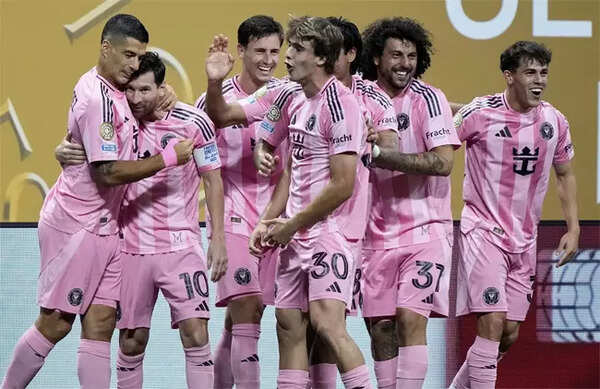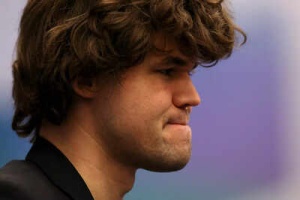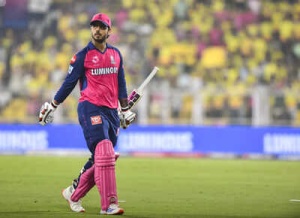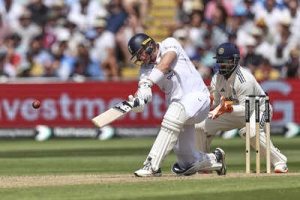The FIFA Club World Cup 2025, in its 21st edition, has adopted a new format, creating significant talking points as it progresses towards the Round of 16. The competition, hosted in the United States, features an expanded number of participating teams, a redesigned trophy, multiple venues, and even referee cameras, bringing it closer in scale to the quadrennial World Cup.
Organizers have hailed it as "a celebration of hope, excellence, and pride," uniting clubs, players, and fans through their shared love for the sport. This edition marks a significant shift with numerous debutants and a month-long schedule, elevating the tournament's prestige.
The 2025 FIFA Club World Cup includes teams from all six confederations: 12 from Europe, 6 from South America, 4 each from Africa, Asia, and North/Central America and the Caribbean, 1 from Oceania, and 1 from the host nation.
With the group stage concluded and the top 16 teams advancing, this year's Club World Cup has delivered its share of surprises, underdog victories, and intense rivalries, both on and off the field.

Auckland City, ranked 4,971st in the Opta Power Rankings, entered the Club World Cup as the lowest-ranked team. They were drawn into a group with Bayern Munich, Benfica, and Boca Juniors. Auckland City, consisting of amateur players from New Zealand's Northern League, faced a daunting challenge.
The team suffered a heavy 0-10 defeat to Bayern Munich, the tournament's largest margin of victory, followed by a 0-6 loss to Benfica.
Facing Argentinian powerhouse Boca Juniors in their final match, Auckland City, already eliminated, defied expectations. In a classic David vs. Goliath encounter, the amateurs held Boca to a 1-1 draw, preventing them from reaching the Round of 16. The result was particularly significant given the 4,819-point ranking difference and Boca's storied history.

Inter Miami, led by Lionel Messi and supported by Luis Suarez, Jordi Alba, and Sergio Busquets, defied expectations by advancing to the Round of 16 from a group that included Porto, Al Ahly, and Palmeiras.
Despite securing only one win, it was enough for Miami to qualify. After a draw against Al Ahly, Messi's brilliance, highlighted by a stunning free-kick, secured a 2-1 victory against Porto. A 2-2 draw against Palmeiras in their final match sealed their place in the next round.
The final matchday in Group E saw tensions escalate as River Plate's Marcos Acuna and Inter Milan's Denzel Dumfries nearly came to blows after Inter denied River a crucial win. The confrontation, stemming from a previous encounter three years prior, involved Acuna displaying the 2022 World Cup trophy logo on his shin guard, referencing Argentina's quarter-final victory over the Netherlands.
Extreme heat also impacted the tournament, with teams resorting to ice baths and cold towels to mitigate the conditions. Borussia Dortmund even had substitutes watch their game against Mamelodi Sundowns from the locker room. Severe weather, including thunderstorms and lightning, caused delays in at least five matches.
Adding to the unique atmosphere, U.S. Immigration and Customs Enforcement (ICE) and Customs and Border Protection (CBP) were present at the tournament, requiring non-citizens to provide proof of legal status to attend games.
With the 2026 FIFA World Cup, co-hosted by the United States, Mexico, and Canada, less than a year away, this tournament has exposed several potential issues. Concerns range from pitch quality to the impact of heat and weather.
Real Madrid's Jude Bellingham criticized the pitch conditions, stating, "The pitches aren’t great here. The pitches aren’t great at all."
Despite the upsets and surprises, the Club World Cup continues to be dominated by European powerhouses. Teams like Real Madrid and Manchester City remain strong contenders for the title. However, teams such as Seattle Sounders, Urawa Reds, Ulsan, Wydad AC, and Pachuca were eliminated without earning a single point.
Game On Season 1 continues with Mirabai Chanu’s inspiring story. Watch Episode 2 here.
Older articles
 Chess Sensation: Nine-Year-Old Indian Prodigy Holds Magnus Carlsen to Draw in Online Tournament
OR
Chess World Stunned: 9-Year-Old Indian Player Draws Against Magnus Carlsen; Carlsen Reaches Unprecedented Freestyle Chess Rating
Chess Sensation: Nine-Year-Old Indian Prodigy Holds Magnus Carlsen to Draw in Online Tournament
OR
Chess World Stunned: 9-Year-Old Indian Player Draws Against Magnus Carlsen; Carlsen Reaches Unprecedented Freestyle Chess Rating
 India's Harshit Rana Released from Squad Ahead of Second England Test in Birmingham
India's Harshit Rana Released from Squad Ahead of Second England Test in Birmingham
 Nitish Rana Eyes Delhi Return After Disappointing Uttar Pradesh Stint
Nitish Rana Eyes Delhi Return After Disappointing Uttar Pradesh Stint
 Akmal Blasts PCB's Azhar Mahmood Appointment, Cites "Lack of Seriousness"
Akmal Blasts PCB's Azhar Mahmood Appointment, Cites "Lack of Seriousness"
 Smith's Century Roars Barmy Army to Life, Edgbaston Test Grips Fans
Smith's Century Roars Barmy Army to Life, Edgbaston Test Grips Fans
 SA20 Teams Granted Six Retentions Ahead of Player Auction
SA20 Teams Granted Six Retentions Ahead of Player Auction
 England Captain Stokes Credits Opening Duo for Setting Up Thrilling Chase Against India
England Captain Stokes Credits Opening Duo for Setting Up Thrilling Chase Against India
 Mirabai Chanu Reveals Relentless Dedication: Weightlifting Dominates Thoughts Even During Family Time
Mirabai Chanu Reveals Relentless Dedication: Weightlifting Dominates Thoughts Even During Family Time
 Black Caps and White Ferns Gear Up for Action-Packed Home Summer Against Global Cricket Giants
Black Caps and White Ferns Gear Up for Action-Packed Home Summer Against Global Cricket Giants
 Phone Grip Personality Test: What Your Hand Position Reveals About You
Phone Grip Personality Test: What Your Hand Position Reveals About You